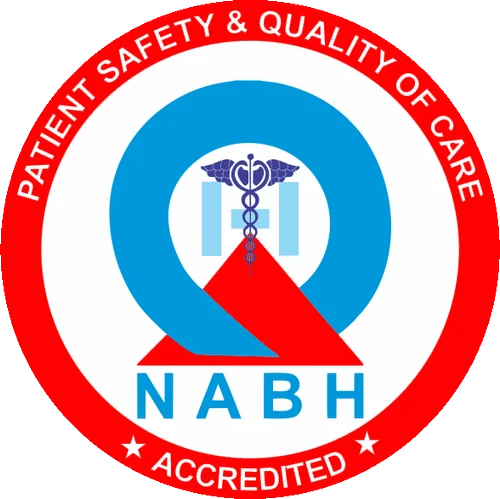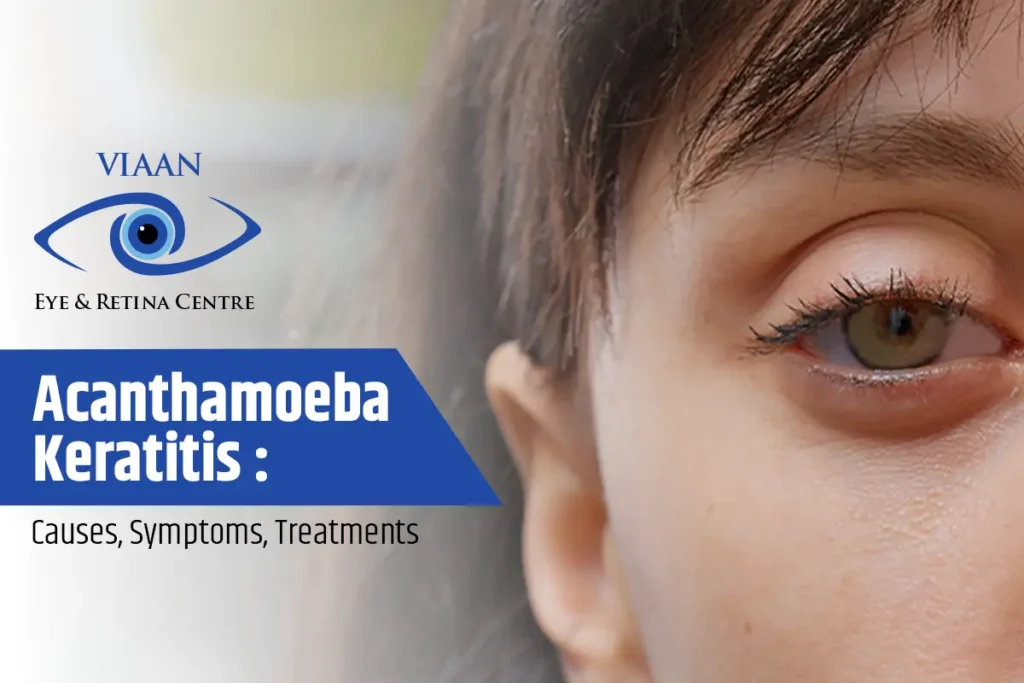One of the dangerous eye infections which is extremely rare is Acanthamoeba keratitis(AK) which is induced by the microscopic and water-living amoeba named Acanthamoeba. Even though an initial infection of AK is a problem for contact lens wearers, the infection can get anyone. Identifying the causes, manifestation, therapy, and prevention measures of Acanthamoeba keratitis is a precondition of compulsory timely diagnosis and effective management of this disease.
Causes Of Acanthamoeba Keratitis (AK)
1.Contact Lens Use
- The inappropriate action of wearing contact lenses overnight, lack of disinfection of contact lenses, and improper removal of these lenses may lead to the growth of Acanthamoeba and, in turn, the development of the eye infection, called Acanthamoeba Keratitis. The amoeba can survive in the case with which the individual uses contaminated contact lenses. Lenses actions such as rinsing them under the tap water or using improper solutions cause the nomination of the eye infection.
2.Contaminated Water Exposure
- Acanthamoeba resides in different environments that range from water supplies including tap water, hot tubs, and pools to soil and dust. Contact lens wearers who find themselves around contaminated water are most likely to be infected. The presence of amoeba in water allows the microbe to enter the eyes.
Symptoms Of Acanthamoeba Keratitis (AK)
1.Eye Pain and Redness
- Individuals with Acanthamoeba Keratitis often experience severe eye pain and redness. The infection can cause inflammation and irritation, leading to discomfort.
2.Blurred Vision
- Hazy Vision or being unable to see clearly (poor eyesight) in a few cases is the most common complaint for people who suffer from Acanthamoeba Keratitis. In the case of a simple amoeba, there is a disruption of the cornea that can lead to poor eyesight.
3.Light Sensitivity
- Increased sensitivity to light, known as photophobia, is another major symptom. The eyes may become more intolerant to bright lights that cause discomfort.
4.Excessive Tearing and Discharge
- Acanthamoeba Keratitis can lead to excessive tearing and a discharge from the eyes. A gritty feeling may accompany the discharge.
Treatments Of Acanthamoeba Keratitis (AK)
1.Prescription Medications
- Antimicrobial medications, such as chlorhexidine or propamidine isethionate, are commonly prescribed to treat Acanthamoeba Keratitis. These medications help eliminate the amoeba and control the infection.
2.Corticosteroid Eye Drops
- In some cases, corticosteroid eye drops may be prescribed to reduce inflammation. However, their use must be closely monitored, as they can potentially exacerbate the infection if not administered properly.
3.Debridement and Corneal Transplant
- Severe cases of Acanthamoeba Keratitis may require surgical interventions, such as corneal debridement or, in extreme cases, corneal transplantation to restore vision.
Precautions Of Acanthamoeba Keratitis (AK)
1.Proper Contact Lens Hygiene
- Strict adherence to proper contact lens hygiene is crucial. This includes using sterile solutions for cleaning and storing lenses, avoiding tap water, and regularly replacing lens cases.
2.Avoidance of Contaminated Water
- Individuals wearing contact lenses should refrain from exposing their eyes to potentially contaminated water sources, such as swimming pools, hot tubs, and showers.
3.Regular Eye Check-ups
- Routine eye examinations are essential, especially for contact lens wearers. Early detection of any signs or symptoms of Acanthamoeba Keratitis can lead to prompt intervention and better outcomes.
4.Education and Awareness
- Educating individuals, especially contact lens users, about the risks associated with Acanthamoeba Keratitis is crucial. Awareness campaigns can emphasize the importance of proper hygiene practices and prompt reporting of any eye-related discomfort.
Conclusion
Acanthamoeba Keratitis, though rare, can have severe consequences if not promptly diagnosed and treated. By understanding the causes, symptoms, treatments, and precautions associated with this eye infection, individuals can take proactive steps to minimize the risk and maintain good eye health. Regular eye check-ups with Retina Eye Specialist, proper contact lens care, and awareness of potential sources of contamination are essential components of preventing Acanthamoeba Keratitis and ensuring optimal eye care.
If you notice any of the symptoms of AK or experience any other eye issues, it is crucial to seek immediate assistance. Contact Viaan Eye & Retina Center directly, where our team of experts is dedicated to addressing eye problems at their root and working towards their resolution. You can book an appointment through a call or you can visit our hospital directly, we are here to help you with every eye problem.
Eye health is considered a top priority worldwide, and our experts are committed to ensuring your vision remains clear and healthy. Don’t hesitate to reach out if you have concerns about your eye health; early intervention can make a significant difference.



